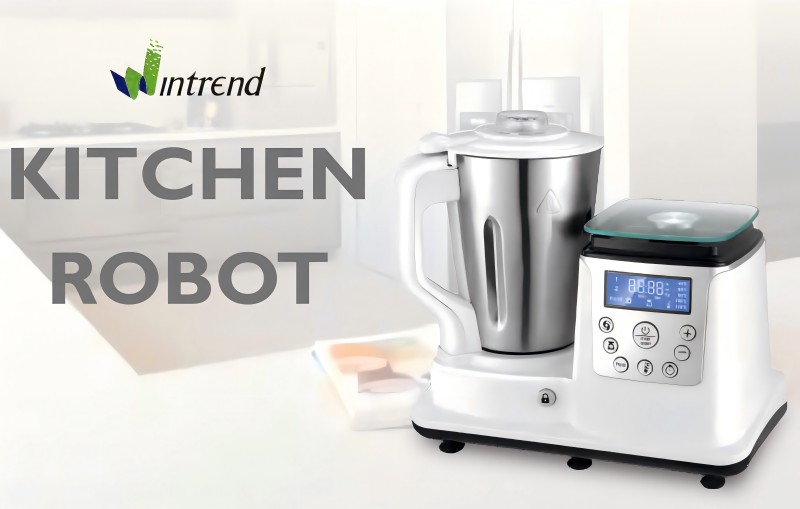Introduction of Thermo Cookers
Thermo cookers, commonly known as electric pressure cookers, have transformed how we cook in modern kitchens. From their early beginnings to today’s sophisticated appliances, these devices have evolved significantly. In this article, we explore the history, functionality, and benefits of thermo-cookers, highlighting how they have become an essential tool for home cooking.
Early Beginnings of the Termo kuhalnik
The Inception of Pressure Cooking
A thermo cooker, initially known as a pressure cooker, has been a mainstay in kitchens for decades. Its origins date back to the early 20th century when the first pressure cookers were invented. These early models were cumbersome and posed safety risks due to the possibility of explosions from improper use. Despite these challenges, the concept of pressure cooking gained popularity, spurring manufacturers to refine their designs and make them safer and more efficient.
The Evolution of Electric Pressure Cookers
A Revolution in Cooking Convenience
In the 1950s and 1960s, electric pressure cookers emerged, offering a more convenient alternative to traditional stovetop models. Although these early electric models were large and bulky, they set the stage for the development of modern thermo-cookers. The introduction of microprocessors and digital controls in the 1980s marked a major turning point, allowing for precise temperature control and improved safety. This shift helped thermo-cookers become an indispensable part of many kitchens worldwide.
Defining the Modern Thermo Cooker
A Safer, More Versatile Cooking Tool
The term “thermo cooker” is a more recent addition to the kitchen appliance world, referring specifically to electric pressure cookers that use both heat and pressure to cook food quickly. Modern thermo-cookers come equipped with features such as automatic shut-off, pressure sensors, and multiple cooking modes, making them safe, user-friendly, and versatile. These appliances are capable of preparing a wide variety of dishes, from stews to tender meats and vegetables.
Key Advantages of Thermo Cookers
Speed and Versatility in the Kitchen
One of the primary benefits of a thermo-cooker is its ability to cook food up to 70% faster than traditional methods. By utilizing high pressure, these appliances break down connective tissues in meat and soften tough vegetables, resulting in faster, more efficient cooking. Beyond pressure cooking, thermo-cookers can also sauté, steam, and slow cook, providing unmatched convenience and flexibility for home cooks.
Addressing Safety Concerns
Incorporating Advanced Safety Features
Despite the many advantages of thermo cookers, concerns about safety have arisen over the years, with reports of accidents and injuries. However, manufacturers have addressed these concerns by integrating multiple safety features such as automatic shut-off and pressure sensors. Modern thermo -cookers are accompanied by detailed user manuals to ensure safe operation and proper maintenance, significantly reducing the risk of accidents.
The Future of Thermo Cookers
Growing Popularity and Technological Advancements
In recent years, the popularity of thermo -cookers has surged, fueled by online reviews and social media endorsements. This has led to the introduction of various models and brands, each offering unique features and benefits. As technology continues to advance, we can expect even more sophisticated thermo-cookers with cutting-edge features such as Wi-Fi connectivity and smartphone control.
Conclusion: The Ongoing Evolution of Thermo Cookers
From their early days as cumbersome stovetop devices to the modern, safe, and versatile appliances we know today, thermo-cookers have undergone significant transformations. As these devices continue to evolve with new technology, they will undoubtedly remain a valuable asset in the kitchen, catering to the ever-changing needs of home cooks around the world.
Thermo Cooker FAQ: Summary
1.What is a thermo cooker?
A thermo cooker, also known as an electric pressure cooker, is a kitchen appliance that uses heat and pressure to cook food quickly and efficiently. Modern models feature automatic shut-off, pressure sensors, and multiple cooking modes for safety and versatility.
2.How did thermo cookers originate?
Thermo-cookers trace their roots to the early 20th century when the first pressure cookers were invented. These early versions were cumbersome and posed safety risks. Over time, electric models emerged in the 1950s and evolved with digital controls in the 1980s, leading to today’s safer and more efficient thermo-cookers.
3.What are the main benefits of using a thermo cooker?
Therm-cookers can cook food up to 70% faster than traditional methods by using high pressure to break down meats and tenderize vegetables. They are versatile, offering functions like sautéing, steaming, and slow cooking, making them convenient and flexible tools for home cooks.
4.Are thermo cookers safe to use?
Yes, modern thermo-cookers are equipped with multiple safety features, including automatic shut-off and pressure sensors, to prevent accidents. Detailed user manuals and guides are also provided to ensure proper use and maintenance.
5.What are the future trends for thermo cookers?
Thermo-cookers are becoming more popular, with advancements such as Wi-Fi connectivity and smartphone app control expected in future models. As technology progresses, these appliances will continue to evolve, offering even more convenience to users.

